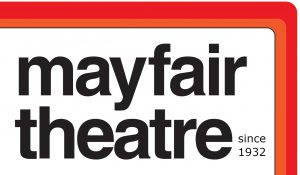Notebook, The
2014 | 112 minutes
Opening in 1944 amid quiet, civilized surroundings that are never seen again, the action unfolds in short, increasingly nightmarish vignettes. Everything is filtered through the eyes of the 13-year-old brothers (Laszlo Gyemant, Andras Gyemant), who narrate in flat, precise and objective-sounding tones.
Left with their cruel grandmother (Piroska Molnar), who starves, beats and otherwise abuses them, the formerly pampered boys at first find it difficult to adjust to their new surroundings. But as they inscribe their thoughts and experiences in the notebook given them by their father (Ulrich Matthes), they realize the only way to cope with the inhumane world of adults and war into which they have been thrust is to become completely unfeeling. Thus, they devise a plan to train their bodies and minds so that they can free themselves from hunger, pain and emotion in order to endure future hardships.
Since thinking of their mother (Gyongyver Bognar) makes the boys feel sad, they banish all thoughts of her, even burning her letters and photos. To better withstand the blows of outsiders, they practice putting mind over matter as they inflict grievous bodily harm on one another. Hunger? No problem. The neighbors harelipped daughter (Orsolya Toth) teaches them how to lie, blackmail and steal. Eventually, they become completely desensitized to the value of human life, and are able to commit murder without any scruples.
The Notebook marks natural material for veteran stage and screen helmer Szasz, celebrated for grim, boldly expressive pics such as Woyzech, The Witman Boys and Diary of an Opium Eater. Despite the difficulty of rendering the singular tone of Agota Kristofs literary prizewinner, Szasz and co-scripter Andras Szeker manage to capture its essence, creating a universally understandable parable about the inhumanity catalyzed by war and the division of postwar Europe.
Like the book, the film strives for a grim (or Grimm) fairy-tale tone; in search of a more universal feel, it also deliberately avoids mentioning specific place names and nationalities. The characters, too, are primal, referred to simply as Mother, Father, Grandmother, the Officer, Harelip, etc. Although the boys have names in the novel, the film credits refer to them as One and Other.
Thesping honors go to the riveting Piroska Molnar as the boys terrifying witch of a granny. Toth also adds to her range, while Danish thesp Ulrich Thomsen, sporting an uncomfortable-looking leather neck brace, suggests all manner of perversities as a German camp commandant. Unfortunately, the glowering, non-pro Gyemant twins, who seem to have only one facial expression (and oddly anachronistic haircuts), continually break the spell woven by the other performers.
Evocative lensing by Christian Berger (The White Ribbon) and inventive production/sound design suggest violent undercurrents that resonates in the viewers imagination, and clever animation makes the eponymous notebook a cinematic synecdoche. The Notebook is the first release supported by the rebooted Hungarian National Film Fund.
